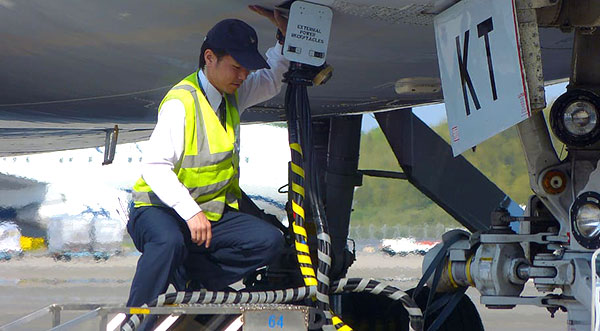Is It Okay To Have Tattoos in the Airline Industry? Find Out Here
By Space Coast Daily // August 27, 2021

For some people having a tattoo is a simple fashion statement, while for others, it can have far more serious implications. Both permanent and temporary tattoos are popular with people worldwide, but some employers do not welcome tattoos in the workplace.
Even in countries where permanent tattoos are legal and tattoo artists are easily accessible, the general population still sees this form of art as taboo.
In other parts of the world, tattoos are frowned upon and strongly discouraged. However, this unique form of body art has continued to grow, and even though it often gets a bad image, many people get them simply because they enjoy them.
For many people, tattoos have a sentimental value and serve as a way to remember someone or something they might have lost. In other cases, specific tattoos done on a particular part of the body are prerequisites to gain entry to a cult.
Having a tattoo could be a major limitation in some job roles and might even prevent you from landing the job. Especially in cases where the tattoo is very visible, such as on the face or the hands, and the job requires frequent interaction with customers and other stakeholders.

1. The Industry
As is the case with most businesses, their practices, norms, and business environment change over time. The aviation industry is no different. While traveling by air was quite a luxury in the past, today it is often cheaper than road transport to fly to certain destinations. As the number of people traveling by air rises to the billions, airlines are hard-pressed to find the resources to keep the ball rolling. While acquiring the necessary machinery is one problem, getting the right human assets is another challenge. Moreover, considering that most air travel is rising in Asia, airlines from other parts of the world are now working towards enhancing their network in Asia, New Zealand, and Australia.
2. Appearance
It wasn’t very long ago that flight attendants were hired based on their appearance. In fact, even other roles in the aviation sector that came into close and frequent contact with passengers were evaluated with a strong bias towards their appearance. This meant that people who had tattoos found getting a job in aviation difficult because tattoos take a while to heal, and having a tattoo removed often leaves scarring and tissue deformations. Most mainstream airlines would not allow staff to cover their tattoos with makeup or any other make-shift solution. Overall, maintaining a solid appearance was, and to an extent still is, a big part of the job. Even though the way the subject is addressed has changed, it still remains a reality.
3. Exceptions
In certain places around the world, tattoos have cultural and even religious importance. It can’t be denied that tattoos have been around for thousands of years and can be found in some form or another in nearly every culture on the planet. For instance, the ‘Ta Moko’ art form indigenous to the Mario people has a significant sacred value and is done by both males and females of the culture. It is an art form that has existed for thousands of years and is more related to the Maori people’s culture, religion, and genealogy than fashion. Asking a Maori to remove the tattoo is an insult to their personal preference of how they wish to fashion themselves and their culture and history. Even though many other forms of body art have similar importance in other cultures as well, it is difficult to justify this in front of an employer who doesn’t understand it.
Things have definitely changed in modern-day air travel but not so much that we can say that tattoos are no longer a problem. If you have recently had tattoos removed and can cover them up relatively well, you may be able to join as a flight attendant. There are a number of other factors that employers will consider in your overall appearance together with your technical competency.

Some airlines do make exceptions, such as Air New Zealand, which recently announced that they would allow people with tattoos to work on their flights. However, this sentiment is not widely accepted. With a growing number of people now leaning towards tattoos, airlines are seeing an increasing number of applicants with tattoos, which was previously uncommon. While it’s not impossible to find employment in the aviation sector for those with tattoos, it is relatively more difficult than it would be for someone without any visible tattoos at all.












